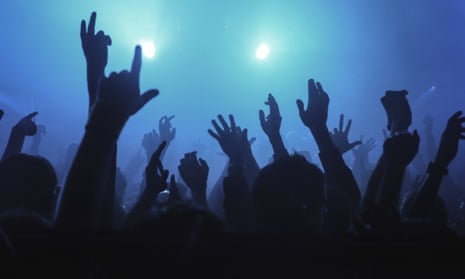After 25 years in the music business, Leanne de Souza has seen plenty of “men at their finest, and men at their worst”.
“Back in the day all the power and influence sat with those men,” she said. “You couldn’t work around them”.
De Souza, now the executive director of the Association of Artist Managers, began her career as a band manager in Brisbane. Making it back then took more than hard work. There were lewd comments to endure. And stray hands.
The Men Against Gender Injustice Collective, an anti-sexist group, is hosting a gig and forum in Brisbane on Sunday, at which de Souza and others will share their thoughts on sexism in the music industry.
“I remember being in a meeting and a man asking the band whether my tits were real,” de Souza said. “Then there’s the late-night culture. I could rattle off dozens of examples of being touched by men without their permission.
“I have had my breasts squeezed, my arse grabbed and batted away dozens of wandering hands and tongues over the year, often at shows, at times in front of their colleagues, staff and even once a wife.
“Any woman in the industry has a list a mile long.”
In the age of #MeToo, some things have changed, others not so much. More women have forged a career path in music but men still dominate the industry and peddle the most influence. Then there’s the nightlife and music festival culture, which remains the scene of behaviour that would not be tolerated in other workplaces.
Last week, researchers from Edith Cowan University released a study that found most people “personally disapproved” of sexual behaviours in pubs and nightclubs but that it was “commonplace for patrons, especially men, to engage in these behaviours”.
Michael Flood, an associate professor from the Queensland University of Technology who researches men and masculinity, said more men were reflecting on their own behaviour in the wake of #MeToo.
“I think large number of men are ... reconsidering how they’ve treated women in the past,” Flood said. “That’s good but at the same time there’s a lot of defensiveness. A lot of men bristle at the idea they’ve done something wrong.”
Flood said men often overestimated other men’s level of comfort with sexism and abuse.
“We assume that every other bloke thinks it’s fine as well,” he said. “The first thing for men to do is to look at our own behaviour ... to look at how we treat women.
“The second thing men can do is challenge other men not to behave in those sorts of ways. Call out sexist and creepy comments. Speak up when a promoter is being sleazy.”
De Souza welcomed Sunday’s event and said it was “long overdue” that men should be confronting their roles and sexism in the music business.
“If it’s not being touched or harassed, it’s just being minimised and trivialised and just being shut out of the conversation,” she said. “Men might be able to keep their hands to themselves a bit better, but a lot of that unconscious sexism still seems to go on.
“It’s time for men to talk to each to each other rather than waiting for women to educate them.”
